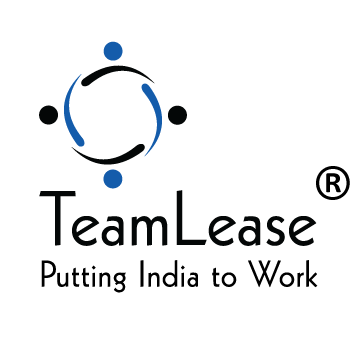What is Staffing? What Falls Outside Its Scope?

Staffing: More than just filling positions
At its essence, staffing transcends the mere routine of ‘placing people to jobs.’ It represents a strategic initiative intricately woven into the fabric of an organisation’s mission. So, essentially, what is staffing? Consider our mission of ‘Putting India to’Work’—staffing becomes the instrumental vehicle through which this mission is accomplished. It involves aligning individuals with specific roles at precisely the right times, serving as the foundation for the organisation’s growth and sustainability.
Staffing involves a comprehensive and holistic approach, encompassing various facets of workforce management. It begins with workforce planning, where the organisation identifies its current and future human resource needs. This is not a one-time event but a dynamic process that evolves as the organisation grows and changes.
Training and on-going development are integral components of staffing. It’s not just about placing individuals in roles but nurturing their skills to enhance productivity continuously. A high-performing team doesn’t happen by chance; it’s the result of deliberate efforts in staff development.
Staffing is a dynamic process that aligns the workforce with organisational goals for growth and sustainability.
It involves recruiting, selecting, training, and developing employees. The process begins with attracting and identifying candidates, followed by assessments and interviews for selection. Training enhances skills for
sustained success, while performance appraisal guides developmental paths. Compensation, benefits, and retention strategies aim to retain top talent. To get a better understanding of what is the scope of staffing, and what its functions are, take a look at the points mentioned below.
- Recruitment and selection: One of the primary functions of staffing is the meticulous recruitment and selection of individuals whose skills, values, and aspirations align with the company’s mission.
- Workforce planning: Forecasting future workforce needs based on business goals and market trends, preventing skill shortages or surpluses that may impact productivity.
- Training and development: Implement training programs for an adaptable workforce meeting evolving business demands.
- Performance management: Setting expectations, providing feedback, and fostering a performance-driven culture for optimal contributions.
- Job evaluation and market research: Crucial role in job evaluation, assessing skills, responsibilities, and qualifications to determine position worth within the organisation.
- Compliance and regulatory considerations: Without any doubt, ensuring compliance by staying abreast of labour laws and regulations is a must for any organisation. Staffing is crucial to safeguarding the organisation through adherence to regulatory considerations.
- Compensation: From attracting top talent to ensuring regulatory compliance, staffing plays a pivotal role in shaping fair and competitive compensation structures.
Contract staffing: An integral component of staffing
Within the ambit of staffing, contract staffing plays a crucial role in enhancing organisational success. Recent data reveals a substantial surge in freelancers and contract workers, particularly in IT, e-commerce, and startups. One trend has taken centre stage and captivated the attention of employers and job seekers alike: the remarkable surge in hashtag temp or contract staffing across sectors and industries. A considerable number of professionals in India now favour the flexibility offered by contract work. Notably, this year’s festive hiring saw a tremendous increase in volume, with a focus on hiring temporary or contract workers.
The surge in contract staffing in India is driven by the demand for flexibility, cost-efficiency, and specialised skills for short-term projects. Startups and SMEs benefit from scalability without long-term commitments, while outsourcing administrative tasks adds to the appeal. Global trends, changing workforce preferences, and seasonal demand also contribute to the shift, allowing organisations to stay agile in a competitive environment and mitigate certain risks associated with permanent employment. NITI Aayog made some remarkable revelations and forecasts in its report titled ‘India’s Booming Gig and Platform Economy.’ It projected the total employment potential of the gig economy to be 23.5 million (4.1% of the total workforce) by the year 2029–30. This will be a massive leap of 200% from the 7.7 million workers engaged in the sector at present.
Our Employment Outlook Report H2 FY24 shows that the retail industry plans to add 23.25 million square feet of mall space during the fiscal year 2023–24. The industry is implementing a hiring initiative covering both the permanent and contractual workforce. This proactive workforce adjustment highlights the sector’s commitment to sustained growth and meeting dynamic market demands.
All of this is happening at a time when the country is increasingly focusing on skill development and vocational training for their workforce. The country’s education system is realigning its goals and curriculum with industry standards. Contract workers, however, have a number of formidable challenges and concerns when it comes to safety, security, skill development, and the formal work environment.
What is not a function of staffing?
While we discuss what is staffing, understanding what is not a function of staffing, also becomes an integral part of refining perceptions in this dynamic field. In exploring the nuances of staffing, it’s crucial to delineate what falls outside its purview. Despite its pivotal role in organisational success, staffing does not encompass functions such as strategic planning, financial management, and marketing, each possessing its unique intricacies. While staffing is undeniably about people and their roles, it is not the overarching strategy that governs the entire organisation.
Staffing myths often permeate the realm of human resources, contributing to misconceptions that can hinder effective workforce management. One prevalent myth suggests that hiring is solely the responsibility of the HR department. To dispel doubts and clarify the multifaceted nature of staffing, it’s essential to recognize that staffing extends beyond recruitment and encompasses various functions essential for nurturing a thriving and resilient workforce. Find out which is not a function of staffing:
- Not exclusively an HR function: Contrary to popular belief, staffing is not the exclusive domain of the HR department. It collaborates across departments, aligning human capital strategies with overarching business objectives.
- Not a one-time activity: Staffing is dynamic, adapting to changing business landscapes. It’s an on-going, iterative process responding to market shifts, technological progressions, and organisational evolution.
- Not solely about filling positions: The process goes beyond filling positions, emphasising quality over quantity by aligning the workforce with the organisation’s strategic direction.
- Holistic organisational strategy: Staffing is crucial but not a standalone solution. It’s part of a broader strategy encompassing effective leadership, clear communication, and a supportive work environment.
- Legal compliance: While staffing involves adherence to employment laws, overall legal compliance is a distinct function, often handled by legal departments.
Understanding the scope of staffing and its multifaceted nature is essential for recognising its pivotal role in organisational success. Our latest report on Optimising People Supply Chain,’ provides valuable insights into mastering the strategic nuances of staffing and fine-tuning your approach to workforce optimisation.
At TeamLease, we advocate a strategic and holistic approach for constant development. Our services include contract staffing, hiring, learning, degree apprenticeships, compliance solutions, and more. For deeper information on our services and to fulfil your staffing requirements, contact us.
Latest Blogs
Evolution of Human Resource Management in India
The evolution of human resource management in India is a compelling story of how businesses have transformed their approach to people. What started as a...
Read More5 Key Manpower Supply Strategies for Hiring Better Talent
In today’s competitive job market, ensuring a reliable manpower supply is critical for business continuity and growth. Whether managing large-scale operations or expanding your business,...
Read MoreBoosting Employment in Rural Areas Through Staffing & Skilling
Rural India is evolving. With nearly 65% of the population residing in villages, it is clear that the next phase of India’s growth story will...
Read MoreFinancial Impact of Attrition & Role of Recruitment Partners
That’s why understanding the actual cost of attrition is more crucial than ever. We at TeamLease keep on tracking and analysing data to come up...
Read MoreStaffing Process: Definition, Key Steps, and Its Importance
Having the right talent in the right roles is crucial for business success. The staffing process plays a vital role in ensuring that organisations attract,...
Read More





